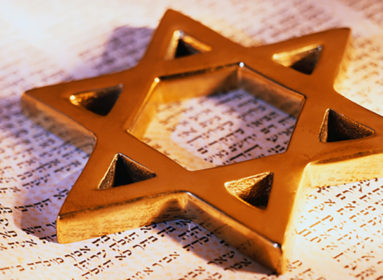By Shlomo Riskin
“Take thy rod, and cast it down before Pharaoh, that it become a serpent”
(Exodus 7:9)
This is one of the most difficult texts to understand in all of the Pentateuch. Perhaps God is attempting to compel the reluctant Moses to command Pharaoh (in God’s name) to release the Israelites from Egyptian servitude; Pharaoh probably will not listen, just as he has not listened before, but eventually God will triumph – herein lies the significance of God’s command. But is it not strange for God to command Moses to command the Israelites to leave Egypt?
There are two major responses to this question. The first is provided by the midrash and cited by Rashi: “[God] said to them [Moses and Aaron], ‘You must know that they [the Israelites] are given to refusing and complaining. [You will only succeed in leading them] if you accept that they will curse you and pelt you with stones.’” Hence, the Lord is telling them that they must learn to be most patient with the Hebrews.
If this is the intent of the command, it is certainly prophetic; Moses, enjoyed little satisfaction and even less honor from his position of leadership. To cite but two examples, when Korah arrogantly challenged Moses after the latter miraculously succeeded in liberating the Hebrew slaves, not one Israelite stood up in his defense. Dathan and Abiram remain hell-bent on returning to Egypt even after the Exodus. They become the ringleaders of a significant number of like-minded Hebrews in the desert after the hapless report of the scouts, brazenly refusing to discuss the matter with the greatest prophet who ever lived (Numbers 16:4,5,12).
Accepting this interpretation would necessitate taking verse 13 to mean “He commanded them about the children of Israel,” rather than “to the children of Israel” which is a leap since the conjunction in question is el (to) rather than al (about).
There is a second interpretation that suggests Moses was commanded to give a precept to the children of Israel: the command to free their own slaves (Jerusalem Talmud, Rosh Hashana 3, 5). The Israelites could not expect Pharaoh to free them if they were keeping slaves themselves. This fascinating idea, which emanates from Jeremiah 34:12- 17, posits that there were some Israelites who were close enough to Pharaoh to have been allowed to maintain slaves even during the Egyptian enslavement.
Despite these interesting suggestions, I would prefer to return to the simplest meaning of the verse: that God spoke to Moses and Aaron and “commanded them to command the children of Israel and Pharaoh to take the children of Israel out of Egypt.”
In order to understand how such a command could apply to the Israelite slaves, I would like to refer to Erich Fromm’s Escape from Freedom. This book maintains that the majority of the world has consistently rejected freedom and the responsibilities that come with it; the difficult and even fateful choices that a free person must often make. It is far easier for people to subject themselves to a totalitarian political or religious regime that will make all the choices – economic, social and even existential – for them.
Virtually all the revolutionary uprisings, from the French Revolution to the Communist Revolution to the Iranian Revolution, have failed. Once the revolutionaries seize power, they become more tyrannical than those against whom they rebelled. Tragically, the Arab Spring revolutions have not yet proven to be exceptions to this rule.
Many people desire to flee the challenges of freedom and responsibility, even though the alternative may be subjugation. This is not what our God wants for humanity. Hence Va’era opens with a new name for God: not “El Shaddai,” the Almighty and All-Powerful God who created and sets limits upon nature and people, but rather Y-H-V-H, the God of redemption and love who leaves room for, and thereby empowers, us to be His partners in redeeming and perfecting the imperfect world.
He will effectuate the redemption – but the people must want to be redeemed, must be willing subjects, yearning to be free. Moses and Aaron must lead them as full partners with God and they will be expected to take risks for freedom by sacrificing the Egyptian pagan god (the lamb). They will be expected to put their lives on the line by fighting for their homeland, Israel, and settling it.
The God of redemption must even wean Moses from his desire that God dominate every thing and direct the historical process without human input. The shortness of spirit (kotzer ruah) and hard labor of the Israelites under Pharaoh make it difficult for them to even imagine the possibility of freedom and human potential.
It will be a long process, one that will not even be completed by the end of the biblical story. But God is preparing the way by instructing Moses to command the Israelites to want to be free, to cooperate as partners with God in their march to redemption.
Rabbi Shlomo Riskin is chancellor of Ohr Torah Stone and chief rabbi of Efrat, Israel.








 Southern New England Jewish Ledger
Southern New England Jewish Ledger













